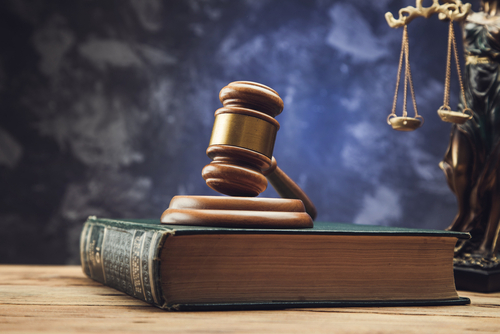
Do we use grand juries in Pennsylvania?
We do. However, usually we don’t. Almost all the time in Pennsylvania, the police make an arrest on the scene, or a detective gets an arrest warrant based on information from a complainant or information from a police investigation. Once the warrant is signed by a judge, the person is arrested. After the arrest is effectuated, the defendant is scheduled for their preliminary hearing. At the hearing the prosecutor or a representative from the prosecutor must put forth enough evidence, that if true, would show that a crime occurred, as charged, at a standard of more likely then not. In english, if what the witness says is true, is the act 51% a crime under PA Law? If so, the judge sends the case to trial in the court of common pleas. Remember at the preliminary hearing the defendant is aware they are being charged and the criminal defense attorney gets to ask questions.
In a grand jury proceeding, its totally different. The prosecutor impanels a grand jury and presents evidence to them. The grand jury then determines whether to return an indictment. If the indictment is returned, the case goes straight to the court of common pleas. The defense attorney doesn’t get to ask any questions.
In general, the grand jury process is very favorable to a prosecutor because they can present the evidence anyway they see fit with no judge interrupting them, no time limit, no defense attorney being a defense attorney. Basically, a good prosecutor should be able to get an indictment from grand juries in Pennsylvania for a ham sandwich. The grand jury process is expensive and totally one sided. It is hardly ever used in Pennsylvania.
However, a perfect time to use a grand jury is in a matter of public scrutiny. A famous person accused of sexual assault. A politician. A prosecutor. A cop. If a normal arrest is made, the media and the public will say that the person got special treatment all the way through the entire process, etc. However, the grand jury is immune from all of that stuff. However, the real hidden piece of the analysis is that if the prosecutor doesn’t really want the person to get indicted, who knows what they will present to the grand jury, hence not getting an indictment. Therefore, while the grand jury seems more immune to media and politics, the prosecutor has a huge impact on what happens in that room.
In the case in Ferguson, Missouri where Wilson was not indicted, the public is questioning everything. Normally, in a case like that where someone died (Brown) where the officer used deadly force when the decedent had no weapon, a decent prosecutor should have been able to get an indictment of a ham sandwich. Therefore, when no indictment was returned, it causes a public outcry for justice. However, the DA has shielded themselves and can now point to the grand jury and blame them.
For the more scholarly readers:
PA Rule 556.11. Proceedings When Case Presented to Grand Jury.
(A) A grand jury has the authority to:
(1) inquire into violations of criminal law through subpoenaing witnesses and documents; and
(2) based upon evidence it has received, including hearsay evidence as permitted by law, or upon a presentment issued by an investigating grand jury, if the grand jury finds the evidence establishes aprima facie case that (1) an offense has been committed and (2) the defendant has committed it, indict defendant for an offense under the criminal laws of the Commonwealth of Pennsylvania; or
(3) decline to indict.
(B) After a grand jury has considered the evidence presented, the grand jury shall vote whether to indict the defendant. The affirmative vote of at least 12 grand jurors is required to indict.
(C) In cases in which the grand jury votes to indict, an indictment shall be prepared setting forth the offenses on which the grand jury has voted to indict. The indictment shall be signed by the grand jury foreperson, or deputy foreperson if the foreperson is unavailable, and returned to the supervising judge.
(D) Upon receipt of the indictment, the supervising judge shall:
(1) provide a copy of the indictment to the Commonwealth authorizing the attorney to prepare an information pursuant to Rule 560; and
(2) forward the indictment to the clerk of courts, or issue an arrest warrant, if the subject of the indictment has not been arrested on the charges contained in the indictment.
(E) At the request of the attorney for the Commonwealth, the supervising judge shall order the indictment to be sealed.
(F) In cases in which the grand jury does not vote to indict, the foreperson promptly and in writing shall so report to the supervising judge who immediately shall dismiss the complaint and shall notify the clerk of courts of the dismissal.

















